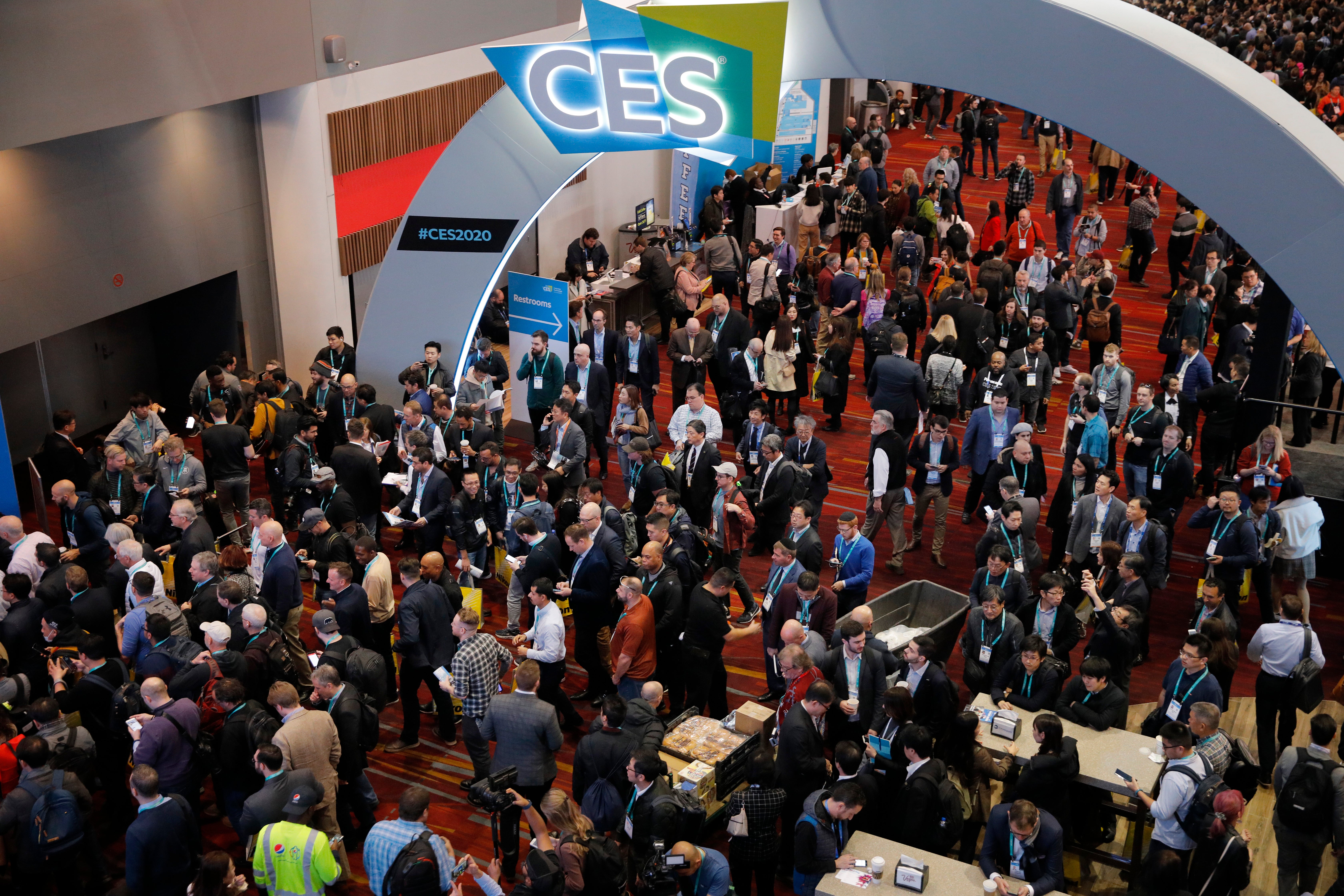CES gadget show stages a wary return amid COVID-19
Is anyone going to CES this year

Your support helps us to tell the story
From reproductive rights to climate change to Big Tech, The Independent is on the ground when the story is developing. Whether it's investigating the financials of Elon Musk's pro-Trump PAC or producing our latest documentary, 'The A Word', which shines a light on the American women fighting for reproductive rights, we know how important it is to parse out the facts from the messaging.
At such a critical moment in US history, we need reporters on the ground. Your donation allows us to keep sending journalists to speak to both sides of the story.
The Independent is trusted by Americans across the entire political spectrum. And unlike many other quality news outlets, we choose not to lock Americans out of our reporting and analysis with paywalls. We believe quality journalism should be available to everyone, paid for by those who can afford it.
Your support makes all the difference.Is anyone going to CES this year?
A long-simmering question in the tech world will finally get its answer as the influential gadget show returns to the Las Vegas Strip after a hiatus caused by the COVID-19 pandemic.
“We know it will be a smaller show this year, for obvious reasons,” said Jean Foster, senior vice president at the Consumer Technology Association, the event's organizer. Several huge tech companies have abandoned plans to attend in person. The latest sign of its dwindling size was Friday's announcement that CES will run one day shorter than originally planned.
The sprawling exhibition floors open Wednesday as the spread of COVID-19's omicron variant has heightened concerns about the safety of indoor events and international travel. The CTA by late December was anticipating between 50,000 and 75,000 attendees for this week's conference, down from more than 170,000 who came for the last in-person gathering two years ago.
Some die-hard CES devotees were considering whether to go or stay home right up until last week.
“An online CES is not a real CES,” said Prince Constantijn of the Kingdom of the Netherlands, in a December interview. “You’ve got to see the products and meet the people.” But a week later, the royal who regularly serves as a special envoy for Dutch technology startups had opted to stay home after all. His country is sending a barebones crew to CES 2022. So are many big tech companies — if they send anyone at all.
The last physical CES in January 2020 pumped an estimated $300 million into the Las Vegas economy. Few attendees would have known then about the coronavirus outbreak emerging in central China and still months away from being declared a pandemic. The CTA took the conference online in 2021 as COVID-19 hospitalizations were spiking around the world and vaccines weren't yet widely available.
The trade group announced eight months ago it was ready to come back to Nevada in 2022 but would offer options for remote participants to see some of it virtually. Those who do travel to CES are required to show they are fully vaccinated and will be given a COVID-19 test kit. Masks are required inside.
“CES is maybe the most significant event economically of the year in terms of conventions," said Alan Feldman, a former casino executive who is a fellow at the International Gaming Institute at the University of Nevada, Las Vegas. Even a significantly reduced event will be “something to look forward to" for local hotels, restaurants, casinos, retailers and entertainment crews, Feldman said.
With a smaller audience and the same sprawling footprint occupied by some 2,000 exhibitors, and a desire to keep people distanced, the CTA's Foster said the “main change for people" will be more empty space and wider aisles.
Much about the omicron coronavirus variant remains unknown, including whether it causes more or less severe illness. Scientists say omicron spreads even more easily than other coronavirus strains, including delta.
Even without a pandemic to dampen the party, tech industry analyst Carolina Milanesi said “big industry events like this are becoming less important than they used to be" as digital technology has supplied other ways to network and keep up with trends.
CES used to stand for Consumer Electronics Show, but Milanesi said the decades-old gathering has become less a place to find the next line of consumer gadgetry and more focused on longer-term technology cycles, like self-driving cars or the artificial intelligence applications being fused into smart homes and cities.
“You no longer go to CES to see what’s going to be in the Best Buy near you by summer,” Milanesi said.
New expo categories centered around the digital assets called non-fungible tokens, or NFTs, as well as space technology and food, reflect the latest tech buzzwords on the minds of investors and marketers. Some companies also plan to hype their vision for the next generation of the internet – a collection of virtual worlds known as the metaverse — though explored from the confines of a physical convention floor.
Milanesi has regularly attended CES for a decade to keep an eye on tech companies and trends but public health concerns led her to mull over whether she’d go this time. She made a final decision in mid-December to attend, but plans to do things differently — visiting the exhibition halls but skipping big speaking events she can watch from her hotel room.
“I haven’t decided yet on the cocktail hours,” she said. “That’s a big reason to go to CES and meet people face to face. With a glass in your hand, people get a little more comfortable discussing things.”